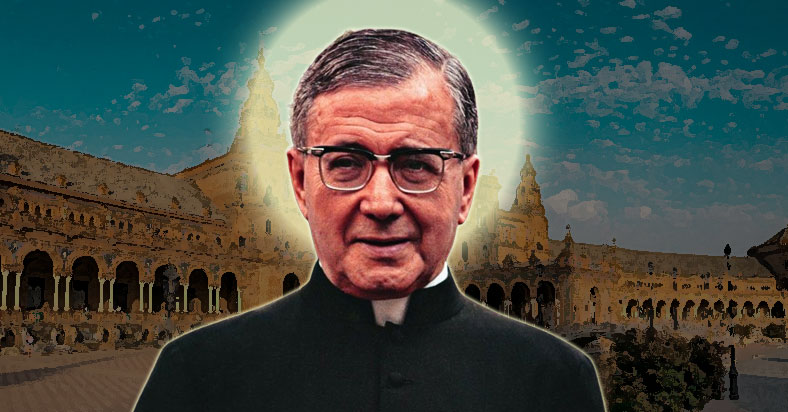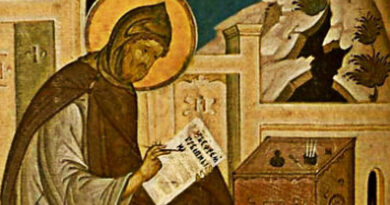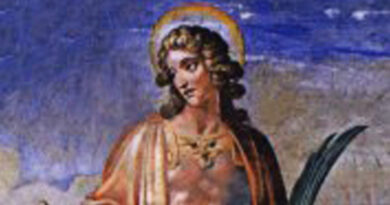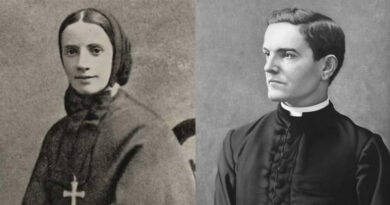St. Jose Maria Escrivá: Founder of Opus Dei and Visionary of Sanctification through Work
•Priest •Feast day: June 26 •1902-1975
St. Jose Maria Escrivá, the revered founder of Opus Dei, was born on January 9, 1902, in the town of Barbastro, Spain. His life was marked by intense spirituality and an unwavering commitment to the sanctification of everyday work. This article delves into his early life, the inspiration behind Opus Dei, and the lasting impact of his spiritual legacy.
Early Life and Priestly Vocation
Jose Maria Escrivá’s journey toward his priestly vocation began at a remarkably young age. A pivotal moment in his childhood was when he saw the footprints left on the snow by a barefoot monk. This simple, yet profound, encounter ignited a deep spiritual calling within him. Determined to follow this path, he pursued his religious studies diligently.
In 1925, after completing his theological education, Jose Maria Escrivá was ordained in Zaragoza. His initial assignment took him to Madrid, where he served as a private tutor and chaplain to the Santa Isabel Foundation. These early years were instrumental in shaping his understanding of the spiritual needs of laypeople and the importance of integrating faith into everyday life.
The Birth of Opus Dei
Three years after his ordination, during a spiritual retreat, Jose Maria Escrivá experienced a divine inspiration that would lead to the founding of Opus Dei, which translates to “Work of God” in English. This name was chosen to emphasize the divine origin of the movement, contrasting it with “work of man.” Escrivá believed that his role was merely as an instrument in God’s hands, and that Opus Dei was a way for Catholics to sanctify themselves through their secular work.
Opus Dei’s core message is that ordinary work and daily responsibilities are paths to holiness. Escrivá’s vision was revolutionary, proposing that spirituality was not confined to the cloister but was accessible to everyone, regardless of their occupation or state of life. His apostolic zeal, particularly among the poor and the sick, and his inclusive spirituality resonated deeply with people from all walks of life.
Growth and Global Impact
St. Jose Maria Escrivá’s message attracted thousands of followers worldwide. Lay faithful were drawn to the movement’s emphasis on evangelization, human welfare, and personal spiritual formation. In 1943, Escrivá founded the Priestly Society of the Holy Cross, which provided spiritual support for priests associated with Opus Dei.
By the time of Escrivá’s death in 1975, Opus Dei had grown to over 60,000 members in 80 countries. His vision of a laity empowered to live their faith through their professional and personal lives had taken root globally, influencing countless individuals and communities.
Canonization and Legacy
St. Jose Maria Escrivá’s canonization in 2002 by Pope John Paul II was a testament to his profound impact on the Church and the world. During the canonization ceremony, Pope John Paul II highlighted Escrivá’s mastery in the practice of prayer and his belief in its power to redeem the world. Escrivá’s emphasis on intense and constant sacramental life as the foundation of fruitful apostolate work continues to inspire millions.
Today, Opus Dei remains a vibrant and influential institution within the Catholic Church, dedicated to fostering spiritual growth and sanctification through the ordinary circumstances of life. St. Jose Maria Escrivá’s legacy lives on, reminding us that holiness is attainable through our daily work and interactions.
St. Jose Maria Escrivá’s life and work underscore a keen truth: sanctity is not reserved for a select few but is accessible to all who seek to live their faith fully in their everyday lives. His founding of Opus Dei has left an indelible mark on the world, encouraging a deeper integration of faith and work, and inspiring countless individuals to pursue holiness in their daily endeavors.




